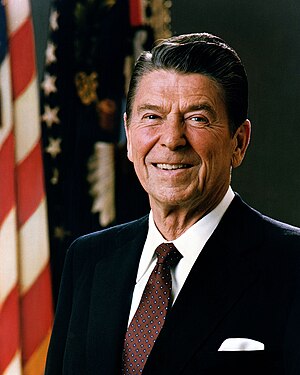The Palin-Reagan comparison
 Image via Wikipedia
Image via WikipediaSen. John McCain was asked for the umpteenth time on Sunday about his former running mate, Sarah Palin. And while his previous responses elicited plenty of headlines, his latest might take the cake.There is more.
The Arizona Republican, responding to a question from CNN's Candy Crowley about Palin being "divisive," noted that Ronald Reagan was often seen as divisive as well.
It wasn't a direct comparison to Reagan (McCain never said Palin is similar to Reagan), but it was a comparison nonetheless. And the reaction was swift, as it often is when it comes to Palin.
So the big question follows: Is it a valid comparison? The answer: In many ways, yes.
The fact is that Reagan has benefited tremendously from the years since his presidency, and people look back on him in a much favorable light than they did during his presidency.
According to Gallup polling data, Reagan's average approval rating during his presidency was 53 percent -- lower than John F. Kennedy, Lyndon Johnson, Dwight Eisenhower and George H.W. Bush and Bill Clinton.
As for the operative word here -- "divisiveness" -- Reagan had a claim to it. Many more Republicans approved of him than Democrats, and even at his peak, just 68 percent of Americans approved of him, a number lower than everyone but Richard Nixon over the last 65 years.
...
It is an interesting comparison. The big difference is that Palin has not attracted the Reagan Democrats yet and she still has a problem with some independents. Republicans tend to like her policies and her sharp response to Democrat attacks, but this sharp response is probably what is holding back support for from conservative Democrats and some independents. She needs to find a way to thread that needle.

Comments
Post a Comment